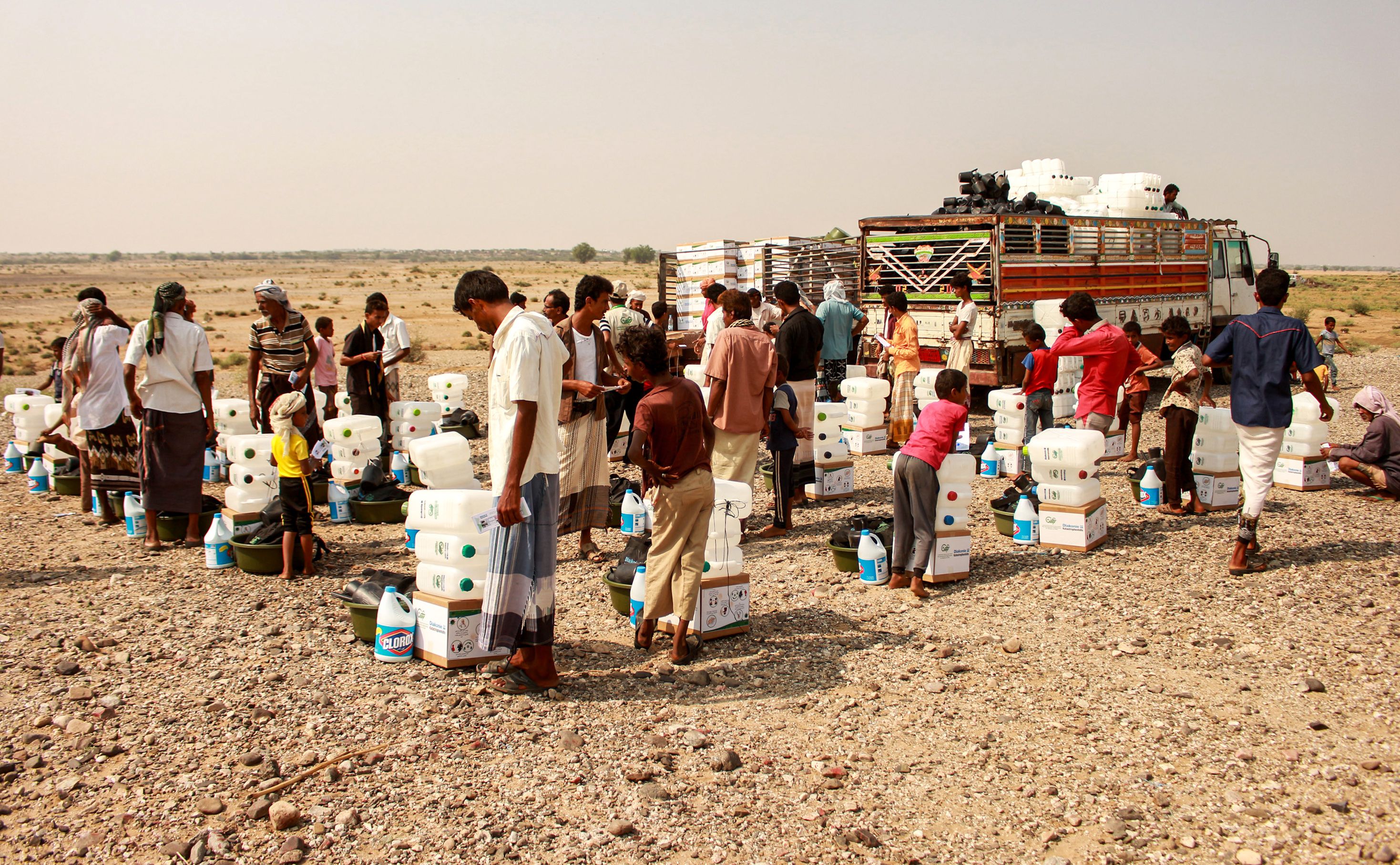The humanitarian crisis in Yemen is the worst I’ve ever seen it – starving children need help now
The dire scenes in this war-ravaged nation are apocalyptic, the government must stop selling arms to Saudi Arabia and send food to Yemen now


The healthcare system in Yemen has collapsed due to an epidemic, but it isn’t Covid-19 that has caused it – it’s child starvation.
Everywhere I go, every family I speak to, their concern isn’t masks, or social distancing, or washing their hands. Their concern is: “I need food or my children will starve to death”.
I've been visiting Yemen at every year since 2000, when I discovered my Yemeni roots. I originally started coming here because it is a part of me. However, I’ve long since stopped going as a Yemeni, I now visit as an aid worker because every time I go, the humanitarian situation is worse. It’s now the worst I’ve ever seen it. It breaks my heart.
I’m currently working with the NGO Syria Relief, a humanitarian aid operation in war-torn Syria that has expertise in providing life-saving aid in a war zone, which is also desperately needed here in Yemen.
There are many, many differences between the situation here in Yemen and the situation in Syria. While poverty has sky-rocketed in Syria since the start of the conflict, prior to its start it was a middle-income country. Yemen was ravaged by poverty long before the civil war.
On this visit, I was in the country a matter of hours when I saw the first of many cases of child malnutrition. I was in a city called al-Dhalea, which is currently a frontline governorate where al-Houthi forces regularly clash with Southern separatist fighters.
My colleague Abdulqadir Muhammad from the Yemeni Red Crescent told me of a mother and a child admitted to hospital on Tuesday. Abdulqadir explained; "the reason so many children are suffering from malnutrition is because their mothers are starving, they can't afford any food and their bodies are so weak that they can't produce any milk to breastfeed their children".
The humanitarian instinct in me kicked in, I wanted to meet this mother and her child. I wanted to help. We set off and whilst we were driving there, Abdulqadir received a call from another local hospital. "They've just made an emergency request for a hundred body bags and burial shrouds,” he said. I asked why so many. I was told it was due to a mix of starvation, fighting, and “a few coronavirus cases here and there”. My heart sank.
For the people of Yemen, coronavirus is only one of many worries. They want to feed their children. The UN reported last month that in Southern Yemen alone there are more than half a million cases of children under the age of five suffering from acute malnutrition.
This sentiment was confirmed when I visited a former school that was bombed in an airstrike and now houses 55 displaced families. When I asked Jaber, who was the representative for the displaced families, why nobody was wearing a mask or seemed to be bothered about coronavirus he replied: “Why should we be bothered about coronavirus when we don't have any food to eat nor water to drink?"
In the hard-hit port city of al-Hodeida, I saw even more distressing scenes. People here have been in poverty long before the escalation of the conflict five years ago, but now the situation is worse than it's ever been. For those who haven't left their homes and fled to a different part of Yemen, there is little hope of any proper health care and most people don't know where their next meal is coming from.
The scenes in al-Sabeen women and children's hospital in Sanaa were apocalyptic. Almost every bed and every ward was occupied by a malnourished child. Their tiny skeletons visible through their skin. It will haunt me forever.
Beyond the bleeps of the ICU units, Dr Najla al-Sonboli, a graduate of the Liverpool School of Tropical Medicine, explained to me that funding the treatment for these children was very difficult as much of the support from international organisations had stopped. She explained that at the moment much of the treatment and transport to and from the hospital for the staff is covered by a group of ladies in Liverpool she knows, who regularly sell cakes, handicrafts and do local fundraisers.
Despite the terrible conditions in the al-Sabaeen hospital, these families were the lucky ones as they had received some healthcare. Around half of the health centres in Yemen are currently closed and the rest are severely under-equipped.
One of the cases that affected me the most was that of Ghasoon, a 19-year-old with womb cancer. We met her and her father when distributing emergency food in al-Hodeida, her father invited us to their home, which was little more than a hut made of sticks. Ghasoon told us that her family used to live in a nice house and they were a family of fishermen and had a comfortable life. When the conflict came to the area they had to flee. "We don't have any money for the treatment of my cancer,” she said with tears in her eyes. "We only just had enough to get checked and diagnosed. I just want the war to stop so I can go back to our home."
This is the sentiment of almost everyone I've met here, they aren't bothered about politics, they just want the conflict to end and now, Yemen is starving, it’s citizens just want to be able to put food on the table.
Each of the hundreds of thousands of cases of children on the brink of death due to starvation is a tragedy, but do you know what else is a tragedy? How preventable this all is. Since the Saudi Arabia-led bombardment of Yemen began in March 2015 the UK has licensed at least £5.3 billion worth of arms to Riyadh. Our government needs to take a lesson from NGOs like Syria Relief, and send Yemen food, not weapons.
Adam Kelwick is an aid worker for NGO Syria Relief



Join our commenting forum
Join thought-provoking conversations, follow other Independent readers and see their replies
Comments